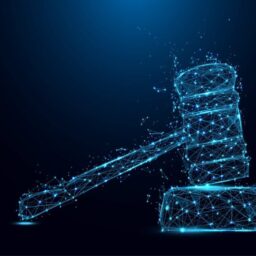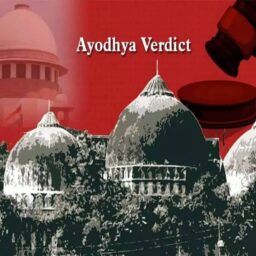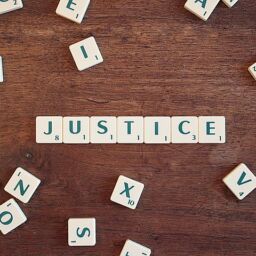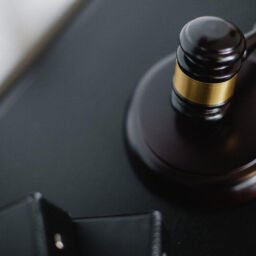ORIGIN OF FUNDAMENTAL RIGHTS
Fundamental rights are continually planned to guard the person’s decency and produce situations that can assist every adult to expand his character to the exhaustive quantity. They interlace an assured pattern at the fundamental structure of human rights. It imposes poor duties at the nation, now not on encroaching on character liberty in its diverse dimensions. They are maximum critical for the attainment through The point of alongside them inside the contract is to gather an administration administered by the standard of equity rather than on the standard of fellow. Basic Rights safeguard individuals’ freedoms and freedoms from official intrusion, as well as the creation of autocratic and totalitarian authority in the country. They are critical for an adult’s and the state’s overall growth. Fundamental privileges overall that are administered by the Constitutional Provisions. They incorporate individuals into civilization while also providing intellectual benefits, allowing a member to appreciate the perks of all attributes of the society.
The initial call for fundamental rights got here withinside the shape of the “Indian constitution Bill, in 1895. Moreover usually referred to as the Swaraj Bill of 1895, it turned into authored at some point of the emergence of Indian chauvinism and an increasing number of vocal needs with the aid of using Indians for self-rule. It pointed out impunity of oration, right to solitude, right to franchise, etc. Fundamental rights in general guard people from any whimsical country actions, however, a few rights are enforceable in opposition to people.[1] For template, the Indian Constitution put an end to untouchability and the practice of bonded labour. These provisions act as a test for each country’s measure besides the measure of personal individuals. However, those rights aren’t absolute or out of control and are a concern to affordable regulations as essential for the safety of widespread prosperity. They also can be carefully reduced.[2]
CONSTITUTIONAL PROVISIONS OF FUNDAMENTAL RIGHTS
Fundamental rights in the country of India are the rights assured under Part III (Articles twelve-thirty five) of the Indian constitution. There are six essential rights (Article twelve-thirty five) recognized through the Indian constitution :
- The right to impartiality (Articles fourteen -eighteen),
- The right to autonomy(Articles nineteen-twenty two),
- The right in opposition to exploitation (Articles twenty three-twenty four)
- The right to independence of theology (Articles twenty five-twenty eight),
- Cultural and academic rights (Articles twenty nine-thirty) and
- The right to constitutional remedies (Articles thirty-two and two hundred twenty-six).[3]
Though the Constitution additionally presents a few additional rights, which include the Right to Property, that aren’t fundamental.[4]We suppose that the right to existence consists of the right to stay with human honour and all that goes in conjunction with it, viz, the naked requisites of existence inclusive of good enough nourishment, apparel, and refuge over the pinnacle and centres for studying, composing and conveying oneself in numerous forms, freely shifting approximately and combining and amalgamate with counterparts.[5]
“Equality before law: The State shall no longer deny to any character equality before the regulation or the identical safety of the laws inside the territory of India”[6].
“Abolition of Untouchability.—”Untouchability” is abolished and its exercise in any form is forbidden. The enforcement of any incapacity bobbing up out of “Untouchability” shall be an offence punishable per regulation”.[7]
“Opportunity of inner voice and free calling, hone and proliferation of religion.—(1) Subject to open arrange, ethical quality, and wellbeing and the other arrangements of this Portion, all people are similarly entitled to the flexibility of soul and the correct unreservedly to declare, hone, and engender religion. (2) Nothing in this article should influence the operation of any existing law or avoid the State from making any law— (a) controlling or limiting any financial, monetary, political, or other common action which may be related with devout practice; (b) giving for social welfare and change or the tossing open of Hindu devout teach of an open character to all classes and segments of Hindus. Clarification I.—The wearing and carrying of kirpans should be deemed to be included within the calling of the Sikh religion. Clarification II.—In sub-clause (b) of clause (2), the reference to Hindus might be interpreted as counting a reference to people declaring the Sikh, Jaina, or Buddhist”.[8]
Opportunity to oversee devout affairs.—Subject to open arrange, profound quality, and wellbeing, each devout group or any segment thereof might have the right— (a) to set up and keep up educate for devout and charitable purposes; (b) to oversee its issues in things of religion; (c) to claim and obtain mobile and immovable property, and (d) to manage such property per law.” Prohibition of business of children in production lines, etc.—No child underneath the age of fourteen a long time might be utilized to work in any manufacturing plant or mine or locked in in any other unsafe employment.[9]
“Assurance of interface of minorities.—(1) Any area of the citizens dwelling within the region of India or any portion thereof having a particular dialect, script, or culture of its own might have the proper to moderate the same. (2) No citizen might be denied affirmation into an instructive institution kept up by the State or accepting help out of State stores on grounds as it were of religion, race, caste, dialect or any of them”.[10]
” Each kid between the period of 6 to fourteen a long time has the correct to gratuitous and compulsory tutoring. This can be said as in line with the 86th Structure Alteration Act through Article 21A. The Proper to Instruction Act looks to offer effect to this alteration The authoritative resources might offer unnecessary tutoring to all of the kids and the resources may be controlled through School Administration Committees (SMC). Private resources should concede at slightest 25% of the kids of their resources with no charge. The National Commission for Rudimentary Instruction will be constituted to manage all components of essential tutoring comprehensive of quality”.[11]
Kesavananda Bharati v. the State of Kerala[12]
Facts of the case:
Kesavananda Bharati challenged the Structure (twenty-ninth Alteration) Act, 1972, challenging the Kerala government’s endeavours, beneath two-nation arrive change acts, to force controls at the control of its (mutt) property. Bharati moreover challenged 3 Protected revisions – the 24th, twenty-fifth, and twenty-sixth revisions – included through the Indira Gandhi government. The overwhelming inquiry that was raised withinside the case turned around the potential of Parliament to correct the Structure in totality primarily concerning crucial rights. To put, the essential inquiry that the Preeminent Court required to decide was whether or not Parliament may need to modify, revise, annul any a portion of the Structure indeed to the amount of dispensing with all essential rights? top legitimate experts Nani Palkhivala, Fali Nariman, and Soli Sorabjee battled the instance for Kesavananda Bharati. A thirteen-decide seat has ended up designed to direct over the case, listened over sixty-eight days. In which, eleven brilliant judgments were conveyed in what’s said to be a 7:6 larger part. The Preeminent Court at that point ruled that the ‘primary structure’ of the Structure turned sacred, and may not be corrected using Parliament. The ‘primary structure’ convention has due to the reality that showed up as a directing guideline of Indian protected law[13].
Judgment of the case
The constitution Bench-led by way of Chief Equity SM Sikri — ruled by implies of a 7-6 decision held that Parliament can revise each Article withinside the Structure but got to be restricted from changing the ‘primary shape’ of the Structure. The court of control held that in step with Article 368, which gives Parliament amending powers, a few things must remain off the right Structure that the most recent revision may trade. The court of law did presently not clarify the ‘primary structure’, and most successfully ordered a few concepts — federalism, secularism, vote-based system — as being its component. Since at that point, the court docket of law has been comprehensive of unused characters on this thought
CONCLUSION
If citizens’ basic freedoms, such as the right to life and a fair hearing, are violated by private entities conducting actions, the Constitution will “lose its significance.” Basic freedoms contained in the Constitution, such as the right to life, fairness, and freedom of opinion, are enforceable against the state and its functionaries, whereas private companies doing governmental acts have argued that they’re being held culpable for violations of people’ privileges. ” If all of us discharge our obligations, rights will now no longer be a long way to seek. If leaving obligations unperformed we run after rights, they’ll get away from us like a will-o’-the-wisp”.[14] The fundamental rights are interrelated and they are the scope for our development to become a good and ideal citizen of the country of India.
Author(s) Name: Guntupalli Srilatha (Dr. B.R. Ambedkar College of Law, Andhra University)
References:
[1] the citizenship (amendment) bill, 2003
[2] Bodhisattwa Gautam v Subhra Chakraborty
[3] The constitution of India,part 3 (articles 12-35)
[4] The constitution of India(forty-fourth Amendment) act,1978
[5] Francis Coralie Mullin v. Union Territory of Delhi
[6]Supra, note 3, art 14
[7] Supra, note 3, art 17
[8] The constitution of India, art 25
[9] ibid 24
[10] ibid 29
[11] Right of Children to Free and Compulsory Education Act, 2009
[12]Kesavananda Bharati Sripadagalvaru & Ors. v. State of Kerala & Anr.
[13] ibid
[14] Mahatma Gandhi, Mohandas Gandhi, Ronald Duncan (2005). “Gandhi: Selected Writings”, p.243, Courier Corporation
















